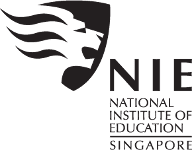Last year, three student teachers in the Postgraduate Diploma in Education (Secondary) (PGDE(S)) programme teamed up with Assistant Professor Chua Boon Liang to conduct workshops for youths taking “O” level Math exams. The youths had come from beneficiary families under the Chinese Development Assistance Council (CDAC), whom Assistant Professor Chua supports in his free time. We asked the volunteers to share their reflections from the experience.
How did your recent CDAC collaboration come about?
I actually conducted a similar CDAC workshop in 2018 at the recommendation of my colleague, Dr Tan Kok Siang. The difference this time was having to conduct the lessons online due to COVID-19. I emailed Nicole Cheung, Lim Yu Jie and Bryan Yong from my PGDE(S) Mathematics tutorial group to see if they were keen to join me. I thought it was a great opportunity for them to practise their pedagogical skills, acquire online teaching experience and explore digital teaching tools. I had hoped too that we could come together to help students from less privileged backgrounds with Math during the pandemic. It was heartening that all three immediately agreed to help out with the workshop.
How did you organise the sessions?
We catered for two half-day workshops initially, and added a third session after realising our 13 participants needed more help. Typically, I would review the important topics in the “O” level Math syllabus, and point out common students’ mistakes and misconceptions during the group-teaching sessions. The student teachers would then lead the breakout sessions at various junctures, to help the participants consolidate their learning.
What topics did you cover, and what were the responses?
We prepared worksheets on topics spanning from Numbers and Algebra, to Geometry, Measurement, Statistics and Probability. These were distributed to the participants ahead of the sessions. As for the participants’ responses, well, I shall let Nicole, Yu Jie and Bryan speak for themselves!
“I agreed to volunteer as it was a chance to serve the community while putting my NIE lessons to practice. In preparation, I identified the potentially tricky problems and questions that I would pose for each session. As I couldn’t annotate my solutions freely, I drew all my diagrams on PowerPoint slides beforehand. At first, it was quite difficult to elicit responses from students as they were quite shy. It got better eventually, as the trickier questions required them to verbalise their thoughts.
When the group was asked to use higher-order mathematical reasoning to solve a problem, it was fascinating to see how they reached the same conclusion using different justifications. Getting to observe Assistant Professor Chua handle these discussions had been eye-opening as well. It just highlighted the nuances that exist in mathematical reasoning.
Overall, it has been really worthwhile helping the students and I cannot be more grateful for the experience. I’ve learnt to manage students’ learning difficulties better, finding ways to probe and prompt rather than giving them the answer directly. I would certainly volunteer again if asked.”
Ms Cheung Zhi Xuan
“I totally agree with Assistant Professor Chua when he says we should ‘有福同享’, which means ‘to share our blessings’. As we all enjoy teaching, and it was rewarding to reach out to students at an unusually stressful time. Having to conduct the workshop in a virtual environment required me to rethink the way I teach, as I wasn’t able to physically check their workings. There was also more preparation involved compared to conventional teaching. I truly take my hat off to all the teachers who dedicated themselves during home-based learning (HBL).
My students were attentive and keen to learn. I thought they adapted well to virtual learning, and I could see their eyes light up whenever an explanation enabled them to connect the dots. Compared to using a whiteboard, I actually preferred teaching on my tablet where I could annotate directly on the worksheets. A simple “thankyouuu ” from the students via the chat function was a huge source of motivation.
I would love to do this again. I don’t think our current predicament should stop us from contributing to a good cause. I’m now even more appreciative of my lecturers at the National Institute of Education for their HBL efforts. It was not easy, but the pandemic has certainly created new opportunities for learning and improvement!”
Mr Lim Yu Jie
“When Assistant Professor Chua first broached the idea, I thought I could gain exposure to community services while acquiring new teaching experiences, so the time and effort had been extra meaningful to me. To be honest, I wasn’t sure if our classroom management strategies would work online. I prepped myself by looking through the lesson plans and questions, figuring out the annotation and drawing tools available for the teaching of Math, and managing my own anxieties in an unfamiliar context.
The students were quite hesitant to speak up — one of them was constantly PM-ing me with questions and responses — so I decided to go round and give everyone a chance to respond instead of directing open questions at the group. The group dynamics online were very different. Equally unforgettable was how we scrambled with different mathematical software to capture students’ solutions, which only goes to show that there are always exciting lessons to be drawn from new experiences, so yes, I would definitely volunteer again if given the chance.”
Mr Bryan Zhishan Yong




